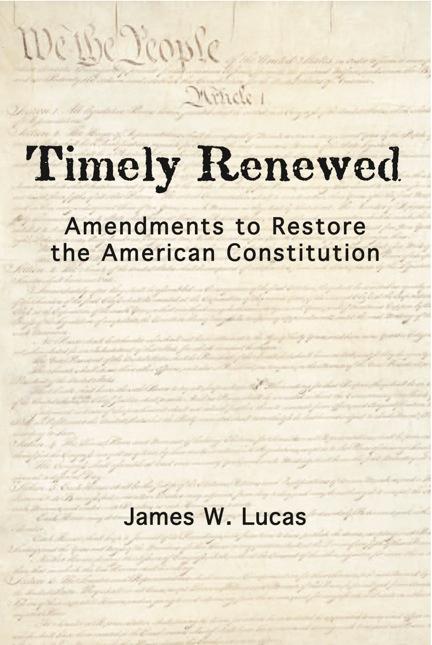Part of the attention Newt Gingrich has attracted recently, both good and bad, has focused on his proposals for reining in an activist federal judiciary. Some of the proposals include congressional legislation limiting the federal courts’ jurisdiction in certain areas, abolishing particularly out-of-control courts, presidential defiance of decisions he deems unconstitutional and calling judges before . . . → Read More: Newt, the Judges, and the Constitution
|
|||||
|
Frustration on both the political left and right have led to calls for a new constitutional convention under Article V of the Constitution. However, such a convention would likely be dominated by politicians and law professors, who would be unlikely to propose amendments restoring the original Constitution, or remain within the limits as to subject matter which the States might include in their convention applications. . . . → Read More: Is an Article V Convention the Best Approach? By amending Article V of the Constitution to eliminate the convention requirement for state-initiated amendment proposals and by slightly lowering the ratification hurdles, we can restore control over the Constitution to the people and end the current federal monopoly over the meaning of our foundational document. . . . → Read More: Restoring the Constitution through the “Amendment Amendment” The proposed reform of Article V provides another route to bypass a recalcitrant Congress. This is a national referendum if two-thirds but not three fourths of the states have approved an amendment. . . . → Read More: But Won’t Congress Block Amendments Restoring Federalism? Of course, the “amendment amendment” would have to be added to the Constitution under the existing Article V procedures. If Congress can not be trusted to pass constitutional amendments limiting its governmental power, why would two-thirds of both houses approve a constitutional amendment which will end Congress’ de facto monopoly on initiating constitutional amendments? Here a . . . → Read More: Can the “Amendment Amendment” be Enacted?, or a Progressive-Tea Party alliance, are you kidding? |
|||||
|
Copyright © 2025 Timely Renewed - All Rights Reserved |
|||||



Obamacare in the Supreme Court – II
A constitutional amendment restoring the original meaning of the interstate commerce clause is the only sure way to reverse not only Obamacare but the rest of the federal regulatory leviathan. . . . → Read More: Obamacare in the Supreme Court – II